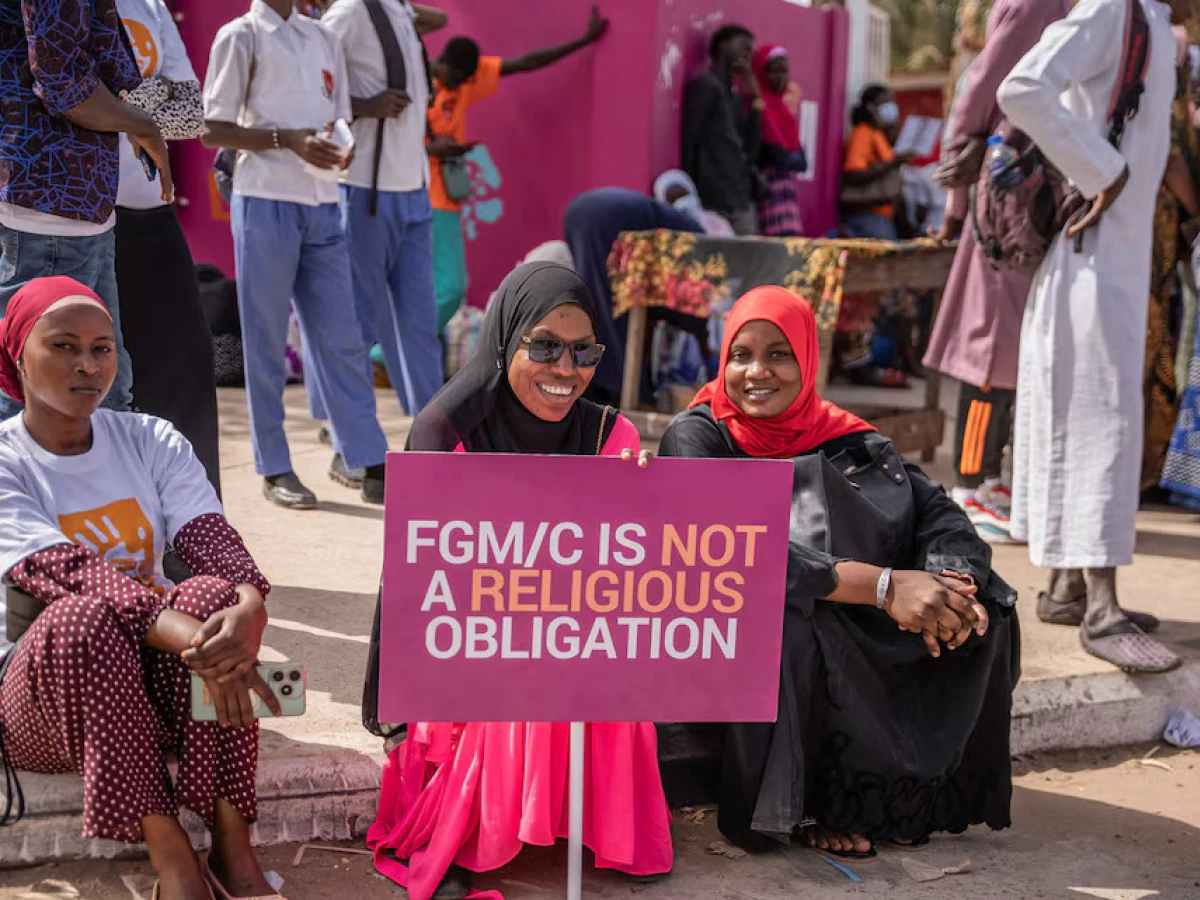
Gambian parliament debates bill to reverse ban on female genital mutilation
Members of parliament have come out both in favour of and against the bill.
BANJUL, March 18 (Reuters) - Gambian lawmakers on Monday debated whether to repeal a ban on female genital mutilation, which has been on the rise in recent years despite activist campaigns to end the practice.
The small West African nation imposed steep fines and jail sentences in 2015 for those who carry out female circumcision, known by the acronym FGM.
The World Health Organization says the practice has no health benefits and can lead to excessive bleeding, shock, psychological problems and even death.
Lawmaker Almameh Gibba presented the repeal bill earlier this month, arguing the ban violates citizens' rights to practice their culture and religion. Gambia is an overwhelmingly Muslim country.
If the bill is passed, Gambia would become the first country to reverse a ban on FGM.
After debating the bill, the lawmakers voted by 42 to four to send it to a parliamentary committee for review, the parliament's speaker said.
The committee can make amendments to the bill and is expected to send it back to the national assembly for a vote, a routine procedure which usually takes at least 3 months.
FGM ON THE RISE
The number of women and girls who have undergone FGM worldwide has increased to 230 million from 200 million eight years ago, the United Nations Children's Fund reported earlier this month.
It said the largest share of those women and girls were found in African countries, with over 144 million cases, followed by over 80 million in Asia and over 6 million in the Middle East.
Advocacy group Equality Now said criminalisation was a crucial step in the fight against female circumcision, though it noted that more than half of the 92 countries where FGM is practised have laws banning it.
The prevalence of FGM among girls in Gambia has fallen precipitously since its ban was enacted, according to U.N. figures.
"If the law is reversed in Gambia, there is a risk that the advocacy efforts in subsequent countries ... will fail or go back," said Caroline Lagat, a programme officer at Equality Now.
Gambia's ban, adopted under autocratic ex-president Yahya Jammeh, has faced pushback, particularly since President Adama Barrow came to power in 2017.
Three women were fined last August for carrying out FGM on eight infant girls, becoming the first people convicted under the law.
Gambia's Supreme Islamic Council responded to the verdict by saying female circumcision was one of the virtues of Islam.
Members of parliament have come out both in favour of and against the bill.
Jaha Dukureh, an anti-FGM campaigner in Gambia, said she was confident the bill would be voted down but that activists like herself faced an uphill battle.
Michèle Eken, a senior researcher at Amnesty International in Dakar, said reversing the ban on FGM would set a worrisome precedent.
"It will simply will be disastrous for women's rights, not only in Gambia, but in the region," she said. "If this is passed, then what's next?"




